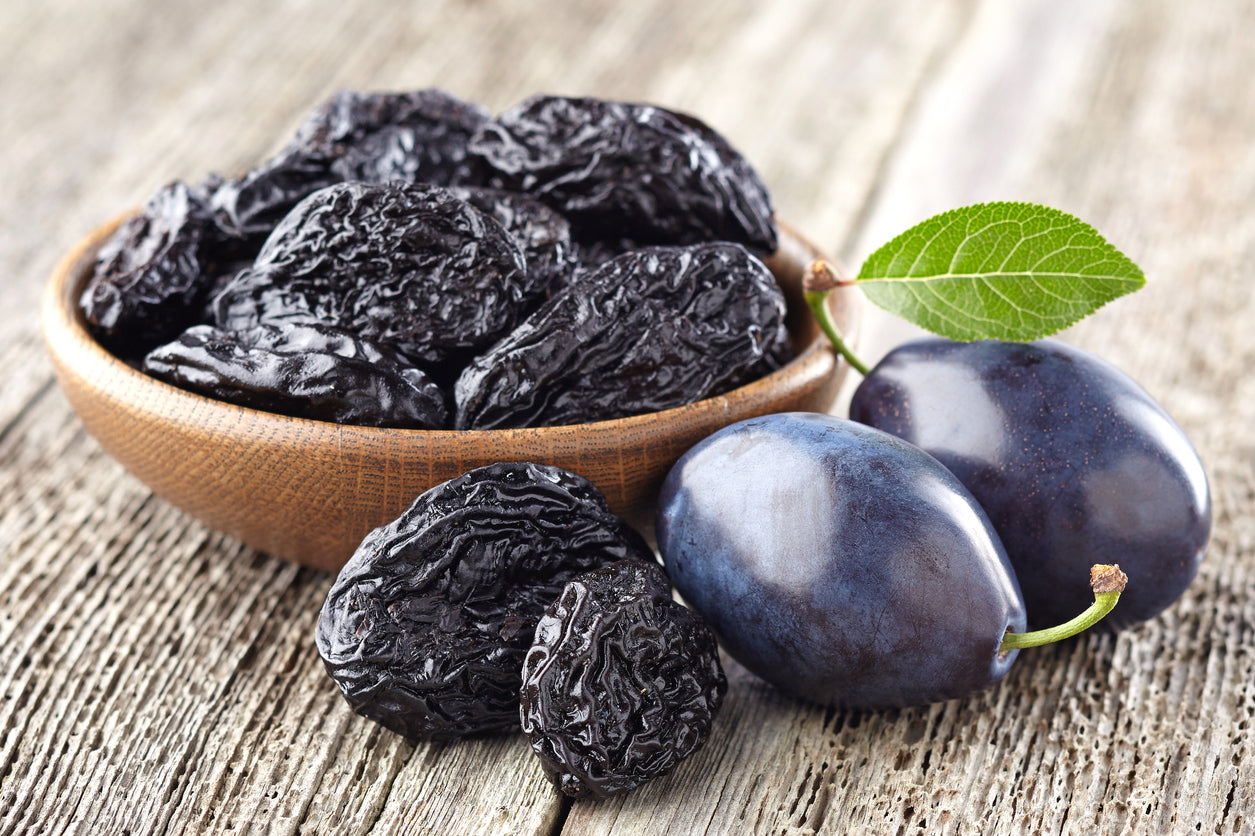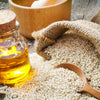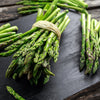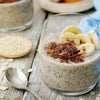4 under-rated benefits of prunes

It’s safe to say - the ability of prunes to help ease constipation and keep you “regular” is well-known. It is also generally well-known that prunes - botanically known as Prunus domestica – are dried plums. (By the way, not just any old plum gets the honor of being dried into a prune. Most prunes eaten in the United States are derived only from the European plum tree).
What is not so obvious is the fact that prunes, which retain all the nutritional benefits of fresh plums, have much, much more to offer when it comes to health benefits. Loaded with antioxidants, dietary fiber, vitamins and minerals, prunes can help combat serious chronic diseases while providing important micronutrients and supporting healthy bones. Let’s take a closer look at the extraordinary powers of these sweet, succulent dried fruits.
Prunes may help prevent and even treat osteoporosis
As we age, our bones can become more brittle and porous, making us more susceptible to fractures and falls. This condition, known as osteoporosis, can have debilitating consequences, with the International Osteoporosis Foundation reporting that one in three women over age 50 - and one in five men - will suffer a fracture due to osteoporosis in their lifetime.
As a natural source of the bone-building minerals boron, calcium and potassium, prunes can act against osteoporosis. Animal research has shown that prunes can prevent bone density loss by reducing the effect of radiation on bone marrow, where bone-building cells (osteoblasts) are formed. And, in a controlled clinical study published in Osteoporosis International, researchers found that prunes helped to prevent resorption of bone and loss of bone mineral density in postmenopausal women vulnerable to osteoporosis.
By the way, it’s not necessary to gobble up handfuls of prunes to get their bone-building benefits. In the study, it only took about half a dozen prunes a day to help prevent bone loss.
Prunes promote heart health
Heart disease, which kills 655,000 Americans a year, has for decades been one of the leading causes of death in the nation. Prunes can act against this deadly disease through their high content of potassium, which regulates heartbeat and helps to lower blood pressure. In addition, prunes are rich in Vitamin K. Once recognized only for its importance to healthy blood clotting, this valuable nutrient is now valued by scientists for its ability to keep calcium in the bones and out of the arteries - where it can contribute to the atherosclerosis that triggers heart disease. In fact, in a new study published just this summer, researchers found that people who eat a vitamin K-rich diet have up to a 34 percent lower chance of developing atherosclerosis-related cardiovascular diseases!
Incidentally, a serving of six prunes offers a substantial 4 grams of dietary fiber - which has been shown to lower harmful LDL cholesterol and promote heart health.
Prunes can help combat COPD
Powerful antioxidants in prunes help to scavenge harmful free radicals - troublemakers that could otherwise cause oxidative damage and lead to chronic inflammation. In an influential study published in the International Journal of Chronic Obstructive Pulmonary Disease, scientists highlighted the role of free radicals in causing bronchial inflammation and triggering respiratory diseases - particularly COPD and pulmonary emphysema. (In fact, the scientists pointed out that COPD patients have depleted levels of antioxidants in the air sacs of the lungs, or alveoli).
The upshot: The study suggests that an antioxidant-rich diet can help reduce risks of COPD. And, prunes contain an abundance of potent antioxidants - including beta-carotene, anthocyanins and 3-caffeoylquinic acid.
Prunes may help prevent anemia
Your body needs sufficient iron to produce hemoglobin, the substance in red blood cells that allows them to transport oxygen through the body. Without enough iron in the diet, iron-deficiency anemia can occur, causing shortness of breath, irritability and fatigue.
While organ meats, beef, fish and chicken are the richest sources of iron, prunes - with one of the highest concentrations of iron of any fruit - can contribute as well, making them a particularly good choice for vegans and vegetarians. (Incidentally, spinach, lentils and olives are also good plant-based sources of iron).
It’s easy to incorporate versatile prunes into your diet
You can stir prunes into oatmeal, toss them into trail mix, blend them into smoothies or yogurt and puree them into jam. Or, simply nibble them out of hand as a satisfying snack.
Although prunes are high in natural sugars, their generous content of fiber means that they can reduce appetite and promote healthy weight - and aren’t likely to cause large “spikes” in blood sugar. Still, with six prunes containing 137 calories and over 21 grams of sugar, it’s best to consume them in moderation.
If you aren’t accustomed to eating prunes, introduce them into your diet slowly to prevent gas and bloating. It’s also a good idea to drink plenty of water when you increase your intake of dietary fiber with prunes.
So, go ahead and add sweet, rich, luscious prunes to your healthy diet – and enjoy their unexpected benefits.
Sources for this article include:






